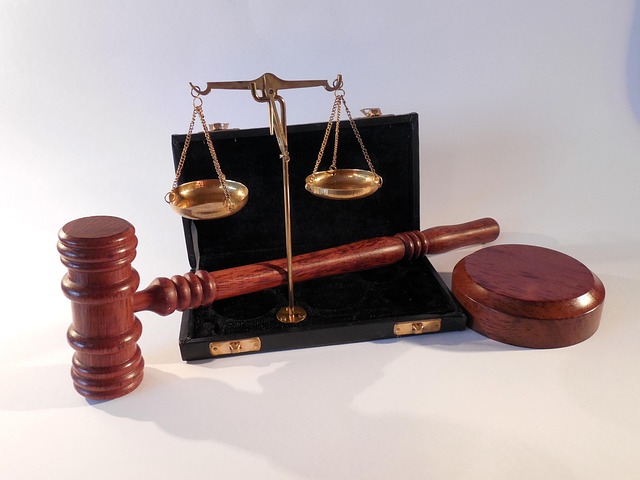Consumer protection lawsuits play a vital role in safeguarding consumer rights against unfair practices, false advertising, and unsafe products, including significant Environmental Law Compliance Issues and Solutions. These cases cover various aspects such as pollution, waste management, and ecological damage, leading to substantial fines and corrective actions for non-compliant businesses. To mitigate risks, companies should implement comprehensive strategies like risk assessments, stringent policies, employee training, stakeholder communication, and sustainable initiatives. Successful case studies demonstrate that proactive compliance measures, coupled with transparent communication, can resolve disputes, enhance customer trust, and ensure long-term business viability while adhering to environmental regulations.
Consumer protection suits are a crucial aspect of ensuring fair practices in the marketplace. This article explores the intricate world of legal frameworks surrounding these suits, with a focus on environmental law compliance issues and solutions. We delve into challenges businesses face, offering strategic insights to mitigate risks. Additionally, through case studies, we present successful dispute resolution stories, highlighting effective approaches for navigating consumer protection litigation. Understanding these dynamics is vital for both consumers and businesses alike.
- Understanding Consumer Protection Suits: A Legal Framework
- Environmental Law Compliance: Challenges and Common Issues
- Strategies for Businesses to Ensure Adherence and Mitigate Risks
- Case Studies: Success Stories in Resolving Consumer Protection Disputes
Understanding Consumer Protection Suits: A Legal Framework

Consumer Protection Suits are a legal framework designed to safeguard the rights of consumers against unfair practices, false advertising, or products that pose health and safety risks. These cases encompass a wide range of issues, from environmental law compliance to ensuring product quality and transparency in marketing. Understanding these suits involves grasping the intricate all stages of the investigative and enforcement process, which aims to hold businesses accountable for their actions.
When it comes to Environmental Law Compliance Issues and Solutions, consumer protection lawsuits play a pivotal role in encouraging companies to adhere to regulations. Across the country, these legal actions have been instrumental in avoiding indictment for environmental violations by prompting businesses to adopt sustainable practices. By carefully navigating this process, both regulators and consumers can foster a more responsible business environment.
Environmental Law Compliance: Challenges and Common Issues

Environmental Law compliance is a complex landscape for businesses, presenting unique challenges and often leading to consumer protection suits. Many issues arise from non-compliance with regulations designed to protect the environment and public health. Common problems include pollution, hazardous waste management, and ecological damage caused by industrial activities. These violations can significantly impact nearby communities, resulting in legal repercussions for companies.
While some cases may lead to complete dismissal of all charges, many result in substantial fines and mandatory corrective actions. Businesses must address these issues proactively to ensure Environmental Law compliance. This involves thorough risk assessments, implementing stringent environmental policies, and providing training for employees. Effective communication with stakeholders, including corporate and individual clients, about environmental initiatives is vital. By adopting these strategies, respective businesses can mitigate risks, avoid legal pitfalls, and contribute to a sustainable future.
Strategies for Businesses to Ensure Adherence and Mitigate Risks

To ensure adherence to consumer protection laws and mitigate risks, businesses should implement robust strategies that encompass every stage of the investigative and enforcement process. This includes staying abreast of environmental law compliance issues and solutions, as many consumer protection suits stem from ecological concerns. Regular training for employees on relevant regulations and best practices can prevent accidental violations. Businesses should also maintain meticulous records and documentation, enabling them to demonstrate due diligence in case of an audit or investigation.
Additionally, proactive measures such as conducting regular internal audits and employing robust quality control systems can help identify and rectify potential issues before they escalate. By addressing these matters swiftly, companies can avoid jury trials and the significant legal and financial consequences that often accompany them. Ultimately, a culture of compliance fosters trust among customers and stakeholders, safeguarding the business’s reputation and ensuring long-term sustainability.
Case Studies: Success Stories in Resolving Consumer Protection Disputes

In the realm of consumer protection suits, case studies often serve as vibrant examples of successful dispute resolution. These stories illustrate how businesses and consumers can navigate complex issues related to Environmental Law Compliance. For instance, a leading manufacturer faced charges over its handling of hazardous waste, but through meticulous legal strategy and transparent communication, they achieved a mutually beneficial settlement. This involved implementing stricter environmental practices and offering compensation to affected customers.
Another compelling case involves a small business that inadvertently violated consumer protection laws due to a lack of proper training for employees. By addressing this gap, the company not only resolved the dispute but also fostered a culture of compliance, attracting both corporate and individual clients who value ethical business practices. This transformation led to enhanced customer trust and long-term success for the respective business.
Consumer protection suits are vital for ensuring businesses uphold environmental law compliance, addressing critical issues and providing solutions. By understanding the legal framework, adopting effective strategies, and learning from successful case studies, companies can navigate these disputes proactively. Implementing stringent adherence measures not only mitigates risks but also fosters a culture of responsible business practices, ultimately benefiting both consumers and the environment.






